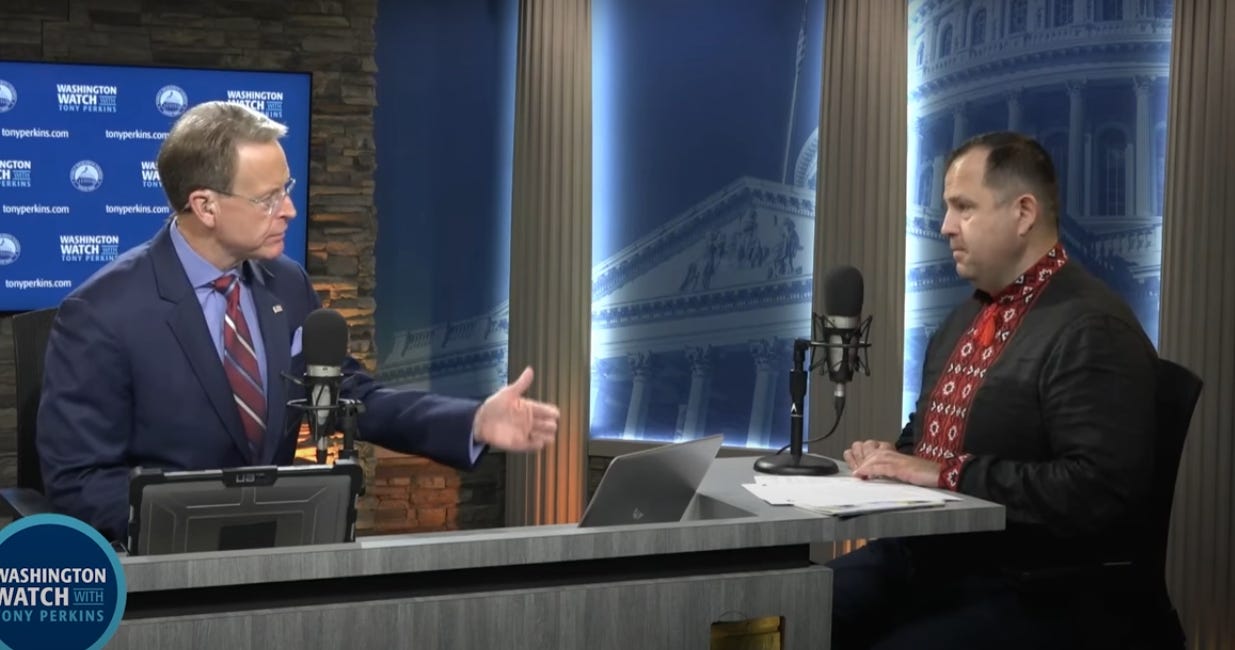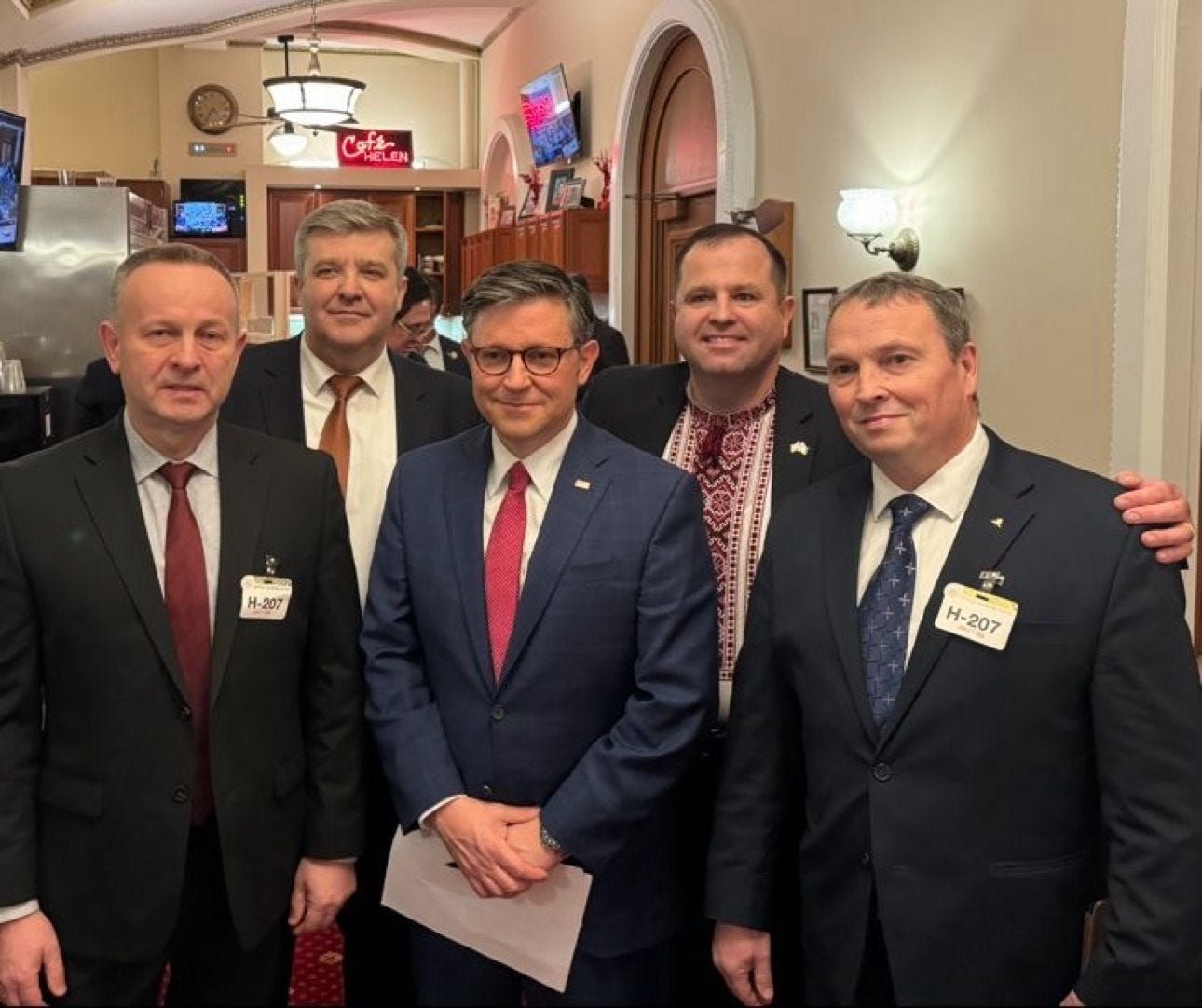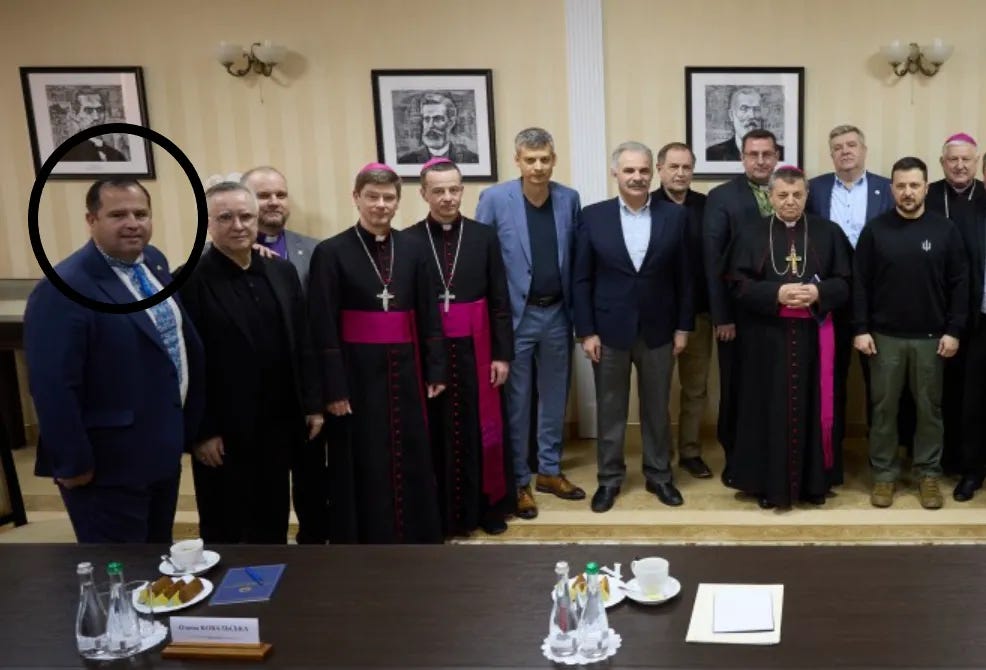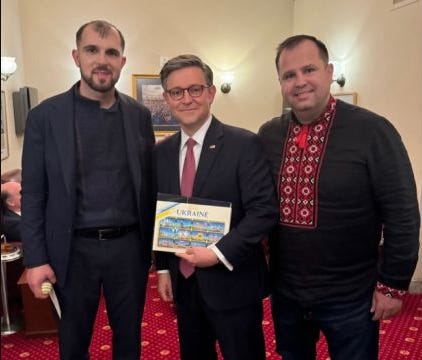America’s “Religious Freedom” Is Tying Ukraine’s Hands Against Russia

Legislation to root out Russian collaborators in Ukraine is being held up in Parliament, Ukrainian sources say, to appease evangelical concerns about religious freedom.
That principle is said to take priority even over the possibility of Ukrainian casualties.
One evangelical, former Member of Parliament Pavlo Unguryan, is warning current MPs off the legislation. Known as Bill 8371, it would give prosecutors new legal powers to fight alleged Ukrainian Orthodox Church (UOC) collaboration with the Russian military.
The UOC only severed formal ties with the Russian orthodox church in 2022. Since then, some UOC clergy allegedly have aided Russian airstrikes and artillery targeting and alerted Russian forces about checkpoints.
After Bill 8371’s introduction late last year, critics called it a de facto ban on the UOC. Unguryan, a longtime leader of his country’s prayer breakfast, rallied U.S. evangelicals to help Ukraine, but is now said to be personally “skeptical” about Bill 8371, on religious-freedom grounds.
Two sources tell me the key reason for delaying Bill 8371 is fear of Republican blowback against anything that smacks of restricting religious freedom. Both sources identified Unguryan as the primary conduit for U.S. evangelical concerns.
Considering that only about two percent of Ukraine is evangelical, Unguryan wields outsize influence. That’s thanks to his U.S. political network, built over his years as the Ukrainian point man for the controversial group behind the U.S. National Prayer Breakfast.
It was the U.S. breakfast that brought Unguryan and other Ukrainian evangelicals to Washington early this year. That’s when Unguryan met with Speaker Mike Johnson (R-LA), framing aid for Ukraine as essential to protecting Christian religious freedom against Russian oppression, Ukrainian sources say.

Despite his adversarial stance toward Russia, one source, a member of Parliament, told me that Unguryan is “skeptical” of 8371. Another, a political operative, said Unguryan and other Ukrainian evangelicals are “genuinely concerned” that the bill infringes on religious freedom.
“They’re just purists,” the operative said. “They believe in religious freedom even if it’s inconvenient and … it creates casualties.”
They’re concerned, the operative said, that whatever valid national-security rationale the bill has, if that means “violating somebody’s religious liberties…[then] that’s a slippery slope.”
It’s not clear how many evangelical Republicans in the U.S. really feel that way. The Ukrainian people don’t.
An April poll found that in unoccupied territory 63% of Ukrainians favor going even further than Bill 8371 would. That includes supporting an actual, explicit ban on the UOC, which Ukrainians still associate strongly with the Moscow patriarchate.
An overwhelming 83% of Ukrainians believe their government should “intervene” in UOC activities at least “to one degree or another.”
But domestic support isn’t the only figure in Ukraine’s political equation. There’s also the unknown quantity across the Atlantic.
Ukrainian politicians fear that passing Bill 8371 could jeopardize the hard-won U.S. evangelical backing that narrowly brought them desperately needed billions.
Also, Zelenskyy’s party reportedly fears that Bill 8371 could hurt him and imperil his “international policy objectives.” That’s because the bill — if successfully framed as an attack on religious freedom — could alienate congressional evangelicals.
“Basically it’s the [U.S.] south,” the MP told me. “When it comes to religious freedom, it’s very sensitive for religious communities, so they’re just saying ‘don’t touch it.’”
The MP said that “southern evangelicals are … putting very much pressure on us” to let the bill die.
But who’s actually applying that pressure, and how much there really is, is hard to pin down.
Tucker Carlson and Rep. Marjorie Taylor Greene (R-GA) have criticized Bill 8371 publicly. And one Ukrainian outlet reported that, behind the scenes, Republicans are lobbying Parliament and Zelenskyy against the bill. But the MP told me that’s not quite the case.
In fact, the MP said, Ukraine’s leaders aren’t getting any pressure directly from Republicans.
“It’s not people literally picking up the phones and calling us and saying, ‘Don’t do that.’” Instead, U.S. Republicans “all talk [to Ukraine] through the evangelical community.” Unguryan, most notably.
Which leaves unresolved the mystery of how much Ukraine’s Parliament is hearing genuine American opposition or Unguryan’s.
Late last year, the U.S. Commission on International Religious Freedom (USCIRF) also warned Ukraine about its “concerns” when Bill 8371 was introduced.
As I wrote earlier this month, one USCIRF commissioner at the time was a Republican appointee, former Rep. Frank Wolf (R-VA). Wolf is a longtime leader of the same international prayer breakfast group that includes Unguryan.
Formally known as the Fellowship Foundation, the loose-knit group was the subject of a 2008 book called The Family, and a Netflix documentary series of the same name. It was The Fellowship that started Ukraine’s National Prayer Breakfast.
Lobbyist Jim Slattery, a former congressional Democrat from Kansas, is a longtime Fellowship leader. A few years ago, he told me that Ukraine’s prayer breakfast began after he suggested it as a way to heal the nation’s wounds.
Unguryan has led the event for years. Before the invasion, it was run under the aegis of his parliamentary group.
As I’ve written before, his group’s website listed activities including “organizing the National Prayer Breakfast [and] protection of the institution of family and marriage as the basis of society.” They invited members of Congress to their breakfast explicitly because of their opposition to LGBTQ+ and reproductive rights.
It worked.
Rep. Tim Walberg (D-MI) — who just told Uganda to “stand firm” defending its LGBTQ+ death penalty — assured Ukrainians in 2019 that prayer breakfasts helped keep then-Pres. Donald Trump on the side of evangelicals.
Unguryan’s prayer breakfast was the biggest in Europe. He got Republicans and Democrats to legitimize it. LGBTQ+ groups, meanwhile, warned that the breakfasts were a nexus in a sprawling, right-wing networking effort.
Where LGBTQ+ groups couldn’t stop the breakfast, the Russian army succeeded. Then, in April, as Zelenskyy desperately sought U.S. aid, he met with his nation’s Protestant and Catholic leaders to ask their help.
Unguryan wasn’t named in public accounts, but I recognized him in an official photo of the meeting.

Accounts of the meeting say the leaders had only one request of Zelenskyy: Revive the prayer breakfast. Zelenskyy agreed.
But the ask was actually more specific, the operative tells me. The religious leaders wanted new, official status for the breakfast. Zelenskyy served that up, too. In spades.
The new breakfast website launched last week with a government URL. And presidential insignia. It says the three-day event is being held “under the patronage” of the president. Zelenskyy will be there. (The Ukrainian embassy referred me to Zelenskyy’s office, which did not respond.)
Author Jeff Sharlet — the journalist behind “The Family” book and Netflix series — says The Fellowship relentlessly pursues official-seeming status.
“The Family’s project has always been dedicated to the destruction of church-state separation,” Sharlet told me, “not by pressing on the state from the outside but by refusing to acknowledge such separations ever existed at all — by treating ‘state’ as a branch of ‘church,’ and vice versa.”
He said that’s why “they labored so long to make it seem like the National Prayer Breakfast in the U.S. was an official event.”
In other countries, “where church-state barriers often aren’t as formal,” Sharlet said, “they seek the same imprimatur. It can seem like a minor detail, a dull matter of semantics. The Family is counting on civil libertarians to make that mistake, to overlook the long game of fusing church with state.”
Another factor is influence, the operative suggested. Ukraine’s evangelicals “are a constituency … just like [Americans] have evangelicals.” A government-sanctioned event “gives them a platform… Maybe lawmakers are more inclined to hear what they have to say.”
Which is precisely what the European Parliamentary Forum on Reproductive and Sexual Rights warned about in a 2021 report. It said Europe’s right wing uses prayer breakfasts “to socialise politicians.” Ukraine was cited.
Ironically, Bill 8371 has divided U.S. evangelicals once united on a theocratic view of religious freedom. Some now say Russia must be stopped to preserve the religious freedom of the Protestants Russia is oppressing. Others claim stopping Russia would restrict orthodox religious freedom.
And the war itself has scrambled other dynamics. Unguryan was once seen as carrying Russia’s water by opposing LGBTQ+ and reproductive rights. Rejecting those rights would prevent Ukraine’s entry into the European Union, much to the satisfaction of Russian President Vladimir Putin.
A key U.S. Fellowship leader, Doug Burleigh, used to envision warmer relations between Putin and Trump. Burleigh was also the Fellowship leader who scored U.S. breakfast tickets for Russian guests including operative Maria Butina.
And there are Ukrainians other than Unguryan tied to The Fellowship. As I reported in April, Valerii Antoniuk, head of the All-Ukrainian Union of the Churches of Evangelical Christians-Baptists, was at Zelenskyy’s meeting.
Antoniuk said at the meeting that his church participates in U.S. prayer breakfasts. Fellowship records I obtained confirm that.
At the meeting, Zelenskyy signaled his awareness that speaking with those religious leaders meant speaking to their international contacts. That was the point.
"I would like to ask you to communicate with each other not only here, within our country, but also abroad,” Zelenskyy said. “This dialogue is very important for us now. After all, the church has a great influence on society, on state leaders."

Two weeks later, Unguryan met with Johnson again. That same day, Johnson announced his flip. And that night, Unguryan told Family Research Council Pres. Tony Perkins that Ukraine would be Europe’s “Bible Belt.”
On Saturday, Unguryan gets his official prayer breakfast. The site gives no information about the organizers, but it’s Unguryan’s show, with three days of events starting Friday.
And before the breakfast was officially scheduled, one Ukrainian report indicated it could be a turning point for Bill 8371. His party’s concerns about harming Zelenskyy internationally were shared in the context of the breakfast.
Deliberations over Bill 8371, Zelenskyy’s party reportedly decided, would wait until after an unnamed, high-profile American breakfast guest had come and gone.
But with all of Ukraine’s fears about American blowback, the MP I spoke to believes Saturday’s breakfast won’t change a thing for Bill 8371. The breakfast, they said, was just the next upcoming event for Parliament to kick the can to.
“There’s always a delay related to something,” the MP said. “Next, something else will come up.”
Jonathan Larsen is a veteran reporter and TV news producer, having worked at MSNBC, CNN, and ABCNews. You can support his independent reporting with a subscription or one-time donation:



